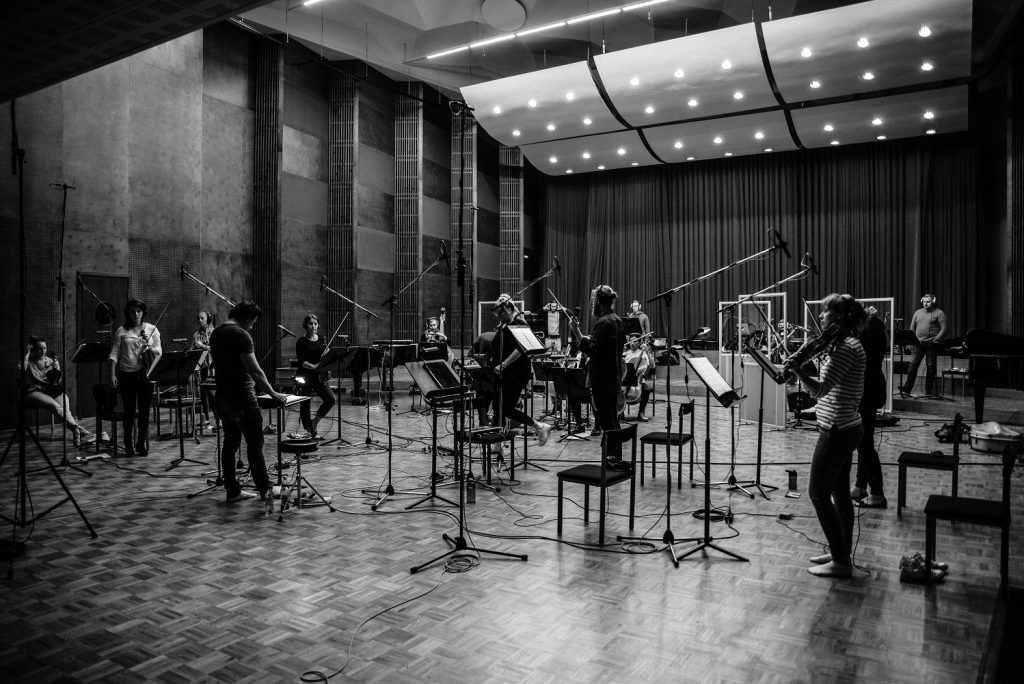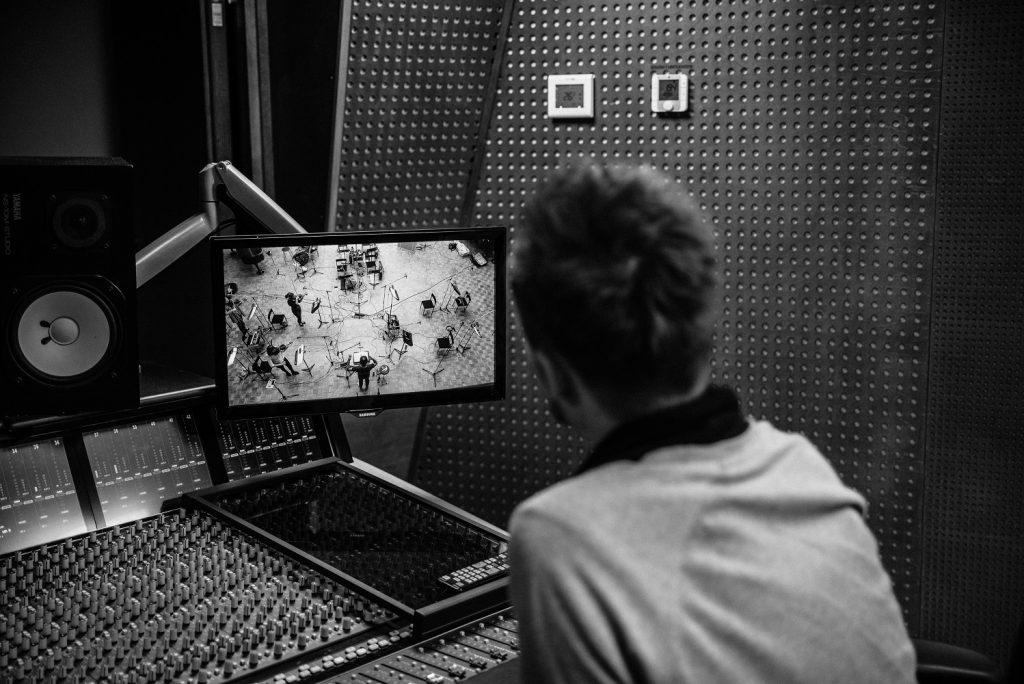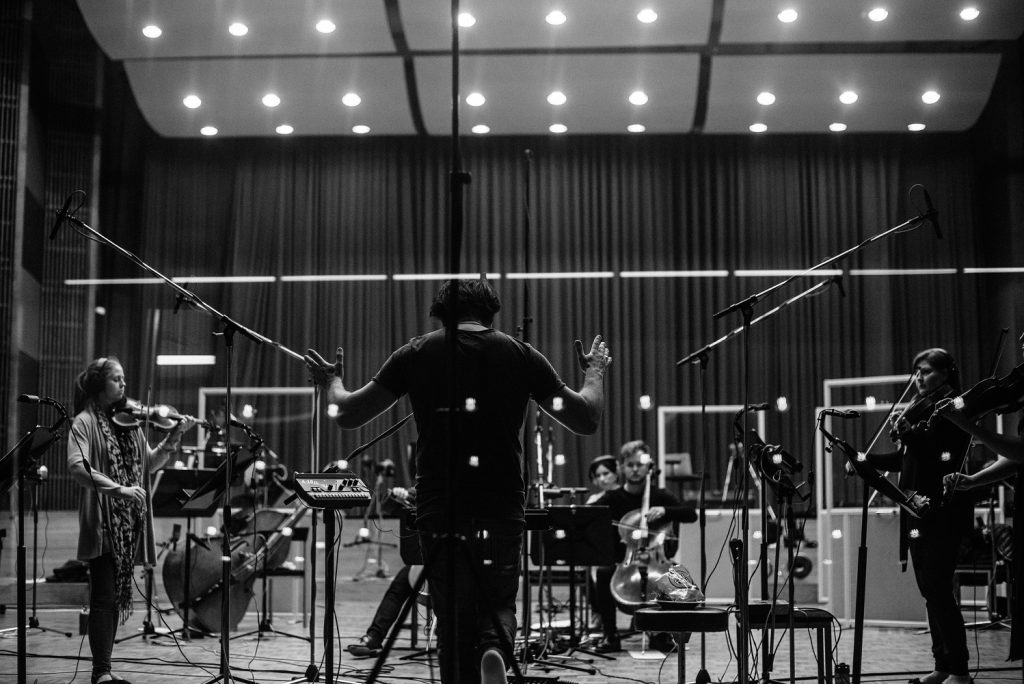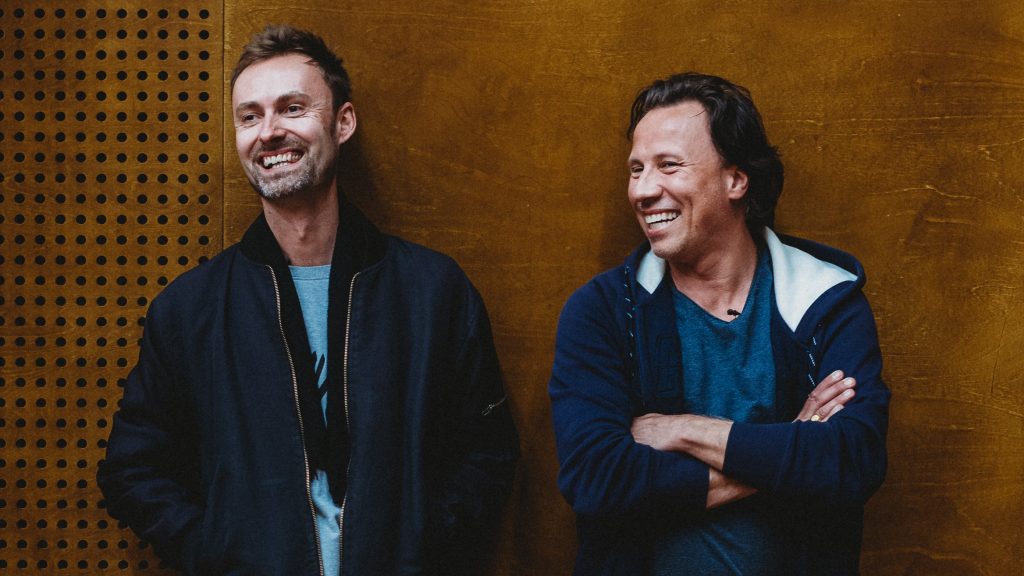The German producer, Robot Koch, worked with the Estonian conductor, Kristjan Järvi, to orchestrate parts of his newest album, “The Next Billion Years”; the album that was partly recorded in Estonia, draws inspiration from everything from Jacques-Yves Cousteau to spirituality.
The German composer and producer Robot Koch has always been fascinated with the future. From a sci-fi-filled childhood to making music that tries to imagine and capture what the future might sound like, Robot has always looked forward as a way to reflect on our current path.
His latest album, “The Next Billion Years”, is perhaps his most ambitious project to date; not only is he attempting to make music about a tremendously distant and wildly unknown future, but he also brought in an orchestra to help him paint the picture. The search for the perfect ensemble took Koch to Tallinn where he worked with the famed Estonian conductor, Kristjan Järvi, and the Nordic Pulse Ensemble. Gaia Lutz got a chance to catch up with both Koch and Järvi about the project.
Robot, can you give me a little bit of the background behind this album?
It starts when I find this tape cassette in a second-hand record store in Los Angeles. It only said “cousteau” on the cover. I bought the tape and found out it contained an important message from the past about our future: a speech by the marine biologist and explorer, Jacques Cousteau, from 1973. His words really resonated with me and seemed really relevant today.
What blew me away is how accurate and relevant his prediction of the future was back then. He talks about current topics, such as climate change, poisoning of the environment, overpopulation and gives an outlook about the survival of our species and how it depends on the decisions we make right now. Our survival depends on the fact that we care. For each other and for the planet. That is the basis for “The Next Billion Years”.
Kristjan, tell me a little bit about this special group of people you work with who make up the Nordic Ensemble?
The Nordic Pulse Ensemble is basically the commando group of Baltic Sea Philharmonic, made up mostly of people who reside in Tallinn or in Estonia. It was a real pleasure to record with Robot, and besides that it was a fun process, I discovered a lot and suggested things to him too. I brought in some of my friends to do this project with me, like orchestration by Gene Pritsker, who is a long-time collaborator even from the days of Absolute Ensemble, which was one of my first bands in New York.
So we all came to Tallinn and started to do this thing last year. Robot was actually very hesitant at first to do anything with orchestral musicians, but I told him not to worry and that we know how to play with the clique, and we know what to listen for. He very much likes the individual personalities that make up the group, and that is what I always try to emphasise and bring out. Like with any orchestra, this is really just a collection of soloists with their distinct personalities. There is not a style that the orchestra has – it is the style the group has because of those very specific personalities in the ensemble so that was the basis for our work together.

Robot, what made you feel like this album should include the participation of Kristjan Järvi and the Nordic Pulse, as well as be recorded in Estonia, and did the setting have any influence over the music?
I saw Kristjan’s performance at the Philharmonie in Berlin and loved it. I loved his forward-thinking approach to conducting – very unconventional and yet serving the music so much. I knew I wanted to work with him then. We then had a few meetings and found out that not only we share a common love for music but also for spirituality and the metaphysical.
It was such a pleasure working with conductor Kristjan Järvi and the Nordic Pulse Ensemble on this album. Seeing how these songs came to life with the orchestra was really special. Like one organism breathing in unison. I truly hope the album resonates with the listeners in one way or another. Music is the tissue that connects us all and working with Kristjan and the orchestra really made this experience of musical exchange so much richer. We understood it beyond words.
Being in Estonia had a big influence on the album, having the chance to experience nature and to interact with people – both in the studio and outside – made me leave the country feeling very inspired. I took that feeling with me to Berlin, where I finished the work on the album.

Being an Estonian yourself, can you tell me what recording this project in your home country meant to you, Kristjan?
The recordings that took place in Estonia were actually done in conjunction with the Estonian Radio and a very cool team of engineers, such as Kareel Tamra and Martin Kistner. It was done in the fantastic Studio 1 of the Estonian Broadcasting Corporation, which is actually where my father (conductor Neeme Järvi – editor) recorded a lot of the first works by Arvo Pärt when he was the chief conductor of the Estonian Radio Symphony Orchestra, which later on became the National Symphony Orchestra. This was back in the early 1960s when that studio had just been built, so for me it has a very big significance because in a way it’s very much going back to the roots.
This was half a century before “The Next Billion Years”, and the stuff that’s now become “living classics” is again being created in that same studio for an “electrofied version” of very much the same sense of discovery and awe, caring and honesty and truth-seeking. Something which is reflected in the title of this album, “The Next Billion Years”. It is a search for humanity, actually.
So for me to be associated with this, not only as conductor but actually with my group, to be able to bring an artist like Robot Koch here to record and finally perform together is incredible. Actually, after Robot’s recording in that studio, Max Richter (a German-born British composer – editor) came to record his album with the Baltic Sea Philharmonic and after that, in October, we recorded an album of my music there, too, called “Nordic Escapes”.

It was a very productive last third of the year in 2019, and all of those projects, Robot’s, Max’s and mine, are very much influenced by Arvo Pärt who has become a symbol of the search for purity. And Estonia is actually very much associated with a certain type of realness or purity. A down-to-earthness that is coupled with a certain kind of ingenuity and humility that seems to still have a foothold in this part of the world. Even though it is a small place, it’s an important place not only for me but I think for many people who seek an escape.
“The Next Billion Years” is out now via Modern Recordings.
Cover: Robot Koch and Kristjan Järvi. Photos by Siiri Kumari.

